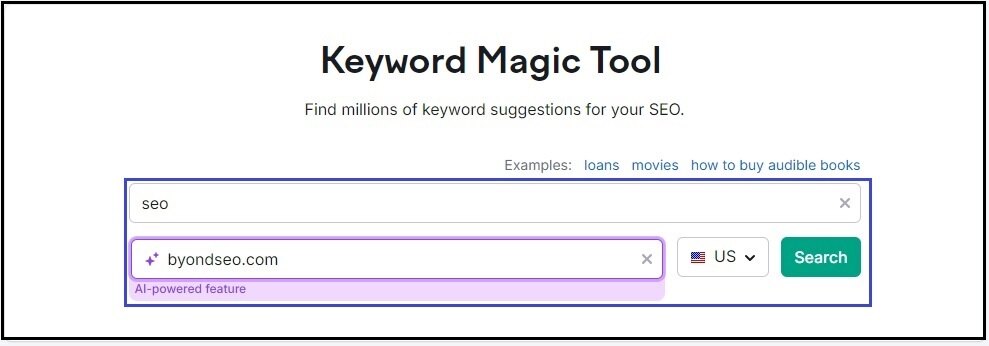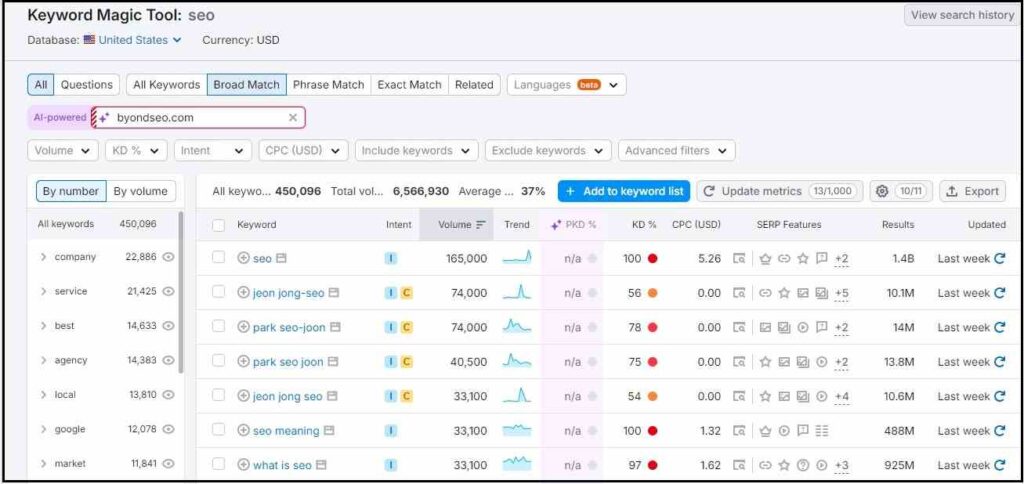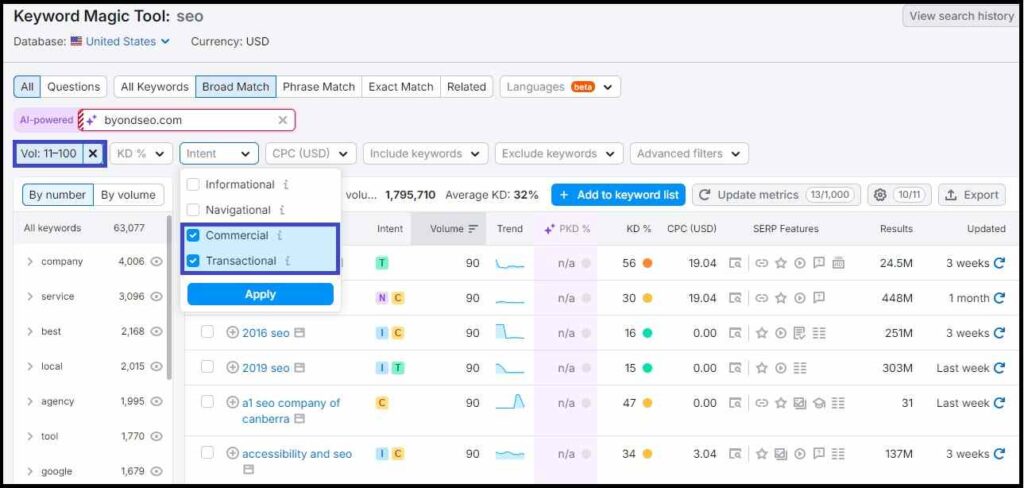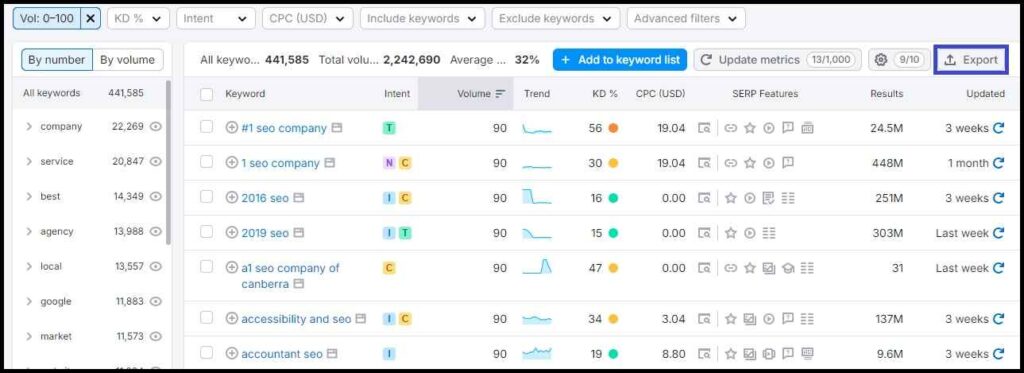In today’s digital world, ranking higher on Google is crucial for driving traffic to your website. If your website isn’t on the first page of search results, you’re missing out on potential leads. But how do you improve your rankings without getting overwhelmed by complex strategies? Don’t worry—We here to guide you with simple, actionable tips that anyone can understand and implement.

By the end of this article, you’ll have a clear roadmap on how to boosting your Google organic search rankings and drive more traffic to your site.
1. Understand Google’s Ranking Algorithm
To begin, it’s essential to know how Google’s search algorithm works. Google updates its algorithm regularly, tweaking it to ensure the best possible results for users. A major update might prioritize mobile-friendly sites or penalize slow-loading pages. You need to stay on top of these changes.
Here’s a tip: regularly check your site’s performance using Google Analytics. Sudden dips or jumps in traffic? It could be due to a Google algorithm update. Staying informed ensures you can adjust your strategy accordingly.
If your traffic has been dropping, don’t panic! The following steps will help you get back on track.
2. Optimize Your Website for the Right Keywords
Imagine this: You own a Digital marketing agency and want to attract more customers online. But instead of showing up when people search “best Digital marketing agency near me,” your site appears for irrelevant searches like “Digital product.” This mismatch happens when you’re not targeting the right keywords.
To fix this, you need to conduct keyword research. Tools like SEMrush or Google’s Keyword Planner can help you discover long-tail keywords—those specific, multi-word phrases your target audience uses.
Now try to find the relevant keyword for digital marketing agency which provides SEO services.
Use the SEMrush Keyword Magic Tool to find the right keywords for you.

The tool will generate the keyword ideas according to your search criteria. You’ll be able to see the search volume, keyword difficulty, search intent, and other important information.

Then you can add more filter for your keywords to find the best ones to target for your website depend on your SEO strategy. You’ll want to prioritize keywords with commercial or transactional intent. The SEMrush Keyword Magic Tool makes it easy to find these keywords for you. You can use the “Intent” drop-down filter and select the “Commercial” and “Transactional” options.

Once you have your keyword list then you can export it to a CSV or Excel file by clicking the “Export” button.

Here’s a helpful checklist for where to include keywords:
- Title tags
- Meta descriptions
- Headers (H1, H2, etc.)
- Image alt text
- Body content
3. Create Unique and Engaging Content
Now that you’ve got your keywords, let’s talk content. Simply stuffing your site with random keywords won’t work. You need to provide high-quality, original content that solves your audience’s problems. When your content is helpful, it’ll naturally attract backlinks, which we’ll discuss later.
Let me share a quick story. A friend of mine owns a fitness blog, and she noticed her traffic wasn’t growing. After revamping her blog with unique and informative articles (like workout tips, meal plans, and motivational stories), her traffic soared. Why? She provided real value to her audience, and people started sharing her content.
Remember, Google rewards fresh and engaging content. If your site is filled with outdated or copied material, it’s time for a refresh. Content marketing (like blogs, infographics, and videos) is your secret weapon to boost your organic search ranking.
4. Improve Your Site’s User Experience (UX)
Here’s a fact: Google loves a good user experience. If your site is slow, cluttered, or hard to navigate, users will bounce off your page, and your rankings will suffer.
Let’s break it down:
- Page speed matters: Compress your images and ensure your site loads quickly. Tools like PageSpeed Insights can show you what’s slowing your site down.
- Mobile-friendly design: Nearly 60% of all web searches come from mobile devices. If your site isn’t optimized for mobile, you’re losing out. You can check this using chrome lighthouse.
- Clear navigation: Help visitors find what they need with intuitive menus and internal linking. A well-organized site keeps users on your page longer, signaling to Google that your site is valuable.
5. Build Quality Backlinks
Backlinks are a powerful way to signal to Google that your site is trustworthy. Think of them as recommendations. The more high-quality backlinks you have, the more Google trusts your content.
But not all backlinks are created equal. Getting links from authoritative websites (like news outlets or popular blogs) is far more valuable than links from unknown or spammy sites.
You can start building backlinks by:
- Creating shareable content (like infographics or original research)
- Guest blogging on reputable websites
- Reaching out to influencers or industry leaders to review or share your content
For example, a local bakery owner created a blog post titled “The Secret to Perfect Sourdough.” That article was picked up by a popular food blog, and the backlinks significantly boosted the bakery’s rankings. The lesson? Create content that others want to link to.
6. Use Internal Links to Your Advantage
While backlinks from other sites are essential, don’t forget about the power of internal links. These are links within your own website that point to other pages on your site.
For instance, if you’ve written a blog post on “How to Brew the Perfect Cup of Coffee,” you can internally link to your product page selling coffee beans. This keeps users on your site longer and helps search engines crawl your website more effectively.
Remember to:
- Link to relevant content naturally
- Use descriptive anchor text that includes keywords
- Focus on linking to your most important pages (like product pages or cornerstone content)
7. Secure Your Website with HTTPS
In 2024, site security is non-negotiable. If your site doesn’t have an SSL certificate (which gives you that little padlock symbol next to your URL), it’s time to fix that ASAP. HTTPS is a ranking factor, and it also assures users that their data is safe.
Imagine visiting a website and seeing a warning that it’s “not secure.” You’d probably leave immediately, right? That’s what visitors will do if your site isn’t protected. Get an SSL certificate, and you’ll instantly boost both your organic search rankings and user trust.
8. Optimize Meta Descriptions and Title Tags
First impressions matter, and your meta descriptions and title tags are the first things people see in search results. A well-crafted title and description can significantly increase your click-through rates.
Here’s how to optimize them:
- Include your target keywords but make it readable and engaging.
- Keep your title around 60 characters and your Meta description under 160 characters.
- Make it compelling! Use action-oriented language to entice users to click.
For example, instead of writing “Learn SEO Techniques,” try something like, “Master SEO: 10 Proven Tips to Boost Your Google Rankings.”
9. Ensure Your Site is Mobile-Friendly
It’s no secret that mobile searches have skyrocketed. If your site isn’t mobile-friendly, you’re missing out on a massive amount of traffic. Google even prioritizes mobile-first indexing, meaning they look at the mobile version of your site first when determining rankings.
Make sure your website is responsive, meaning it adjusts to different screen sizes and devices seamlessly. Test your site using tools like chrome lighthouse to see how it performs.
10. Use Video Content to Engage Users
If you haven’t already, it’s time to jump on the video content bandwagon. Video is a powerful tool to keep visitors engaged and on your site longer. And, as we know, the longer visitors stay, the better your rankings.
Videos don’t have to be Hollywood-quality. A simple tutorial, explainer video, or behind-the-scenes footage can work wonders. You can even create product demos or customer testimonials to build trust and authority.
Fun fact: Websites that use video content are 53 times more likely to rank on the first page of Google!
11. Update Your Content Regularly
Google favors websites that are kept up-to-date. If your last blog post was from three years ago, Google might think your site isn’t relevant anymore.
Set a schedule to review and update old content regularly. This could involve adding new statistics, revising outdated information, or expanding on certain topics.
Updating your content signals to Google that your site is active, which helps improve your organic search rankings.
12. Improve Readability with Proper Formatting
Good formatting can make your content easier to read and more engaging. Use:
- Short paragraphs
- Bullet points and lists for easy skimming
- Headings and subheadings (H1, H2, etc.)
- Clear fonts and appropriate font sizes
The easier it is to read your content, the more time visitors will spend on your site, which helps boost your rankings.
13. Fix Broken Links
Imagine clicking on a link and being greeted with a 404 error page. Frustrating, right? Broken links not only ruin the user experience but also harm your SEO.
Regularly check your site for broken links and fix them immediately. Tools like Screaming Frog or Google Search Console can help you find and repair these issues quickly.
14. Use Analytics to Monitor Your Progress
Finally, no SEO strategy is complete without regular monitoring. Use tools like Google Analytics and Google Search Console to track your site’s performance. Keep an eye on important metrics such as:
- Organic traffic
- Bounce rate
- Average session duration
- Conversion rates
If you notice certain pages are underperforming, revisit them and apply the tips mentioned above to improve them.
Conclusion
Improving your Google organic search rankings doesn’t happen overnight, but with the right strategies in place, you’ll see steady progress. Start by understanding Google’s algorithm. Creating high-quality content, optimizing for keywords, and building backlinks. Don’t forget about mobile-friendliness and security, which are key factors for success in 2024.
By following these tips for boosting your Google organic search ranking, you’re on your way to attracting more traffic, engaging users, and ultimately driving more sales. Implement these steps consistently, and watch your website climb the ranks.
Here are some more SEO-related articles if you want to go deeper:
Daily SEO Tasks List: A Step-by-Step Guide for Success
7 Things Google Can Measure That Might Affect Your SEO
What is Google E-E-A-T, and Why E-E-A-T is Important for SEO?
Boost Your Business with the Comprehensive Benefits of SEO
How to Save Money with SEO (20 Do-it-yourself SEO Tips to Save Money)
Why Is SEO Maintenance Important For Your Online Growth



